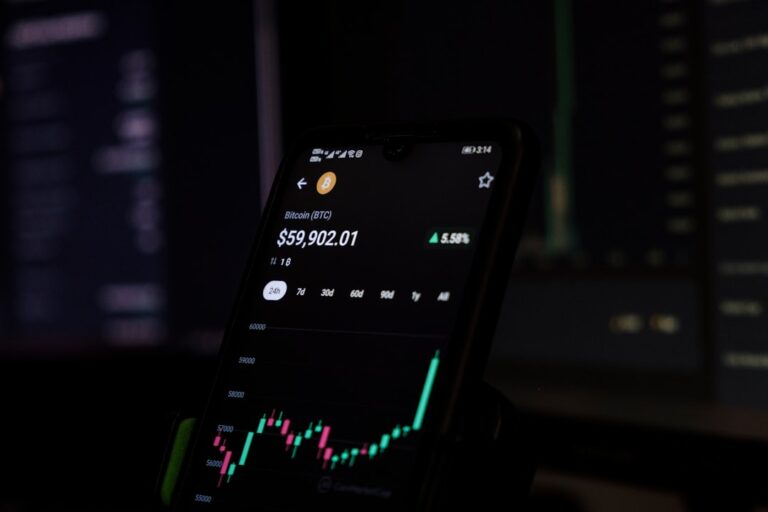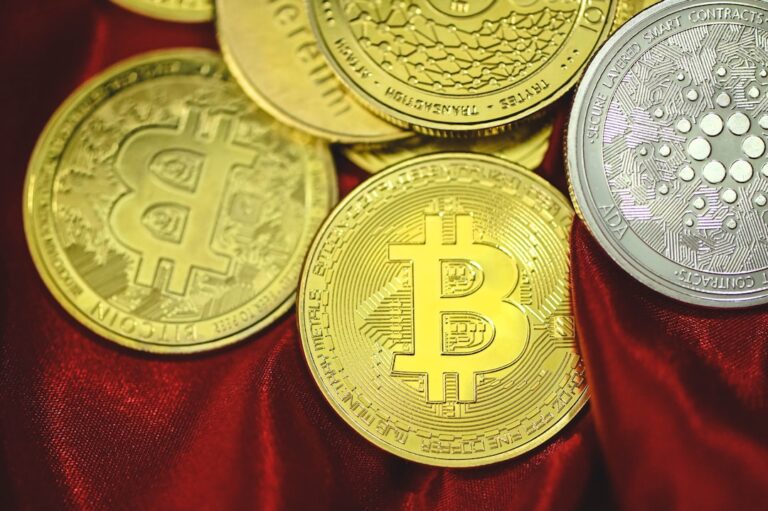What Does My Phone Number Say About Me?
The area code is the first three digits of a phone number and it represents a specific geographic region within a country. In the United States, for example, the area code 212 is associated with New York City, while 310 is associated with Los Angeles. Area codes were first introduced in the 1940s as a way to streamline long-distance calling and to help automate the routing of calls. Over time, as populations have grown and technology has advanced, new area codes have been added to accommodate the increasing demand for phone numbers. Today, area codes are an essential part of the dialing process and play a crucial role in connecting callers to their intended recipients.
The area code of a phone number can provide valuable information about the location of the caller or the recipient. It can also be used to identify the general area where a business is located or where a person resides. In some cases, area codes have become synonymous with certain cities or regions, and they can carry cultural and social significance. For example, the area code 808 is associated with Hawaii and is often used in marketing and branding to evoke images of tropical paradise and relaxation. Additionally, area codes can be used as a way to connect people with shared geographic ties, such as alumni from the same area code or residents of a particular city. Overall, area codes are an important aspect of phone numbers that provide valuable context and information about the location of the caller or recipient.
Key Takeaways
- The area code is the first three digits of a phone number and represents a specific geographic region.
- The exchange code is the next three digits of a phone number and identifies the specific telephone exchange within the area code.
- The last four digits of a phone number are unique to each individual phone line and help to further identify the specific subscriber.
- Phone numbers can be classified as either landline or mobile, with landline numbers being associated with a specific physical address and mobile numbers being portable.
- The history of a phone number can reveal previous owners, usage patterns, and any associated incidents or events.
- Repeating or sequential numbers in a phone number are often considered lucky or significant in some cultures and can be associated with good fortune or special meaning.
- Certain phone numbers may hold cultural or societal associations, such as being considered lucky, unlucky, or prestigious based on their numerical sequence or historical significance.
The exchange code
The exchange code is the next three digits of a phone number following the area code, and it is used to identify the specific central office or exchange that serves a particular geographic area. In the early days of telephone technology, exchange codes were used to route calls within a local calling area, and they were often associated with a specific neighborhood or community. For example, in New York City, the exchange code 212-477 was associated with the Upper West Side, while 212-689 was associated with Midtown Manhattan. As technology has advanced and populations have grown, exchange codes have become more generalized and are no longer tied to specific neighborhoods or communities. However, they still play a crucial role in routing calls and connecting callers to their intended recipients.
The exchange code of a phone number can provide valuable information about the general location of the caller or recipient. It can also be used to identify the central office or exchange that serves a particular area, which can be useful for businesses and organizations looking to establish a local presence. Additionally, exchange codes can carry cultural and social significance, especially in areas where they were historically tied to specific neighborhoods or communities. For example, in cities like New York and Chicago, certain exchange codes are still associated with particular neighborhoods and can evoke a sense of nostalgia or community pride. Overall, exchange codes are an important aspect of phone numbers that provide valuable context and information about the location of the caller or recipient.
The last four digits
The last four digits of a phone number are unique to each individual line and are used to identify a specific subscriber within a central office or exchange. In the early days of telephone technology, these digits were manually assigned by telephone operators and were often chosen based on the subscriber’s preferences or occupation. For example, a doctor might request a phone number with the last four digits corresponding to “MD1” to signify their profession. As technology has advanced and populations have grown, last four digits are now randomly assigned by service providers and are no longer tied to specific occupations or preferences. However, they still play a crucial role in identifying individual phone lines and connecting callers to their intended recipients.
The last four digits of a phone number can provide valuable information about the specific subscriber or line. They can also be used to identify individual businesses or organizations within a central office or exchange, which can be useful for establishing a local presence or for marketing purposes. Additionally, last four digits can carry personal significance for individuals, especially if they have chosen a custom number that holds special meaning to them. For example, someone might choose a phone number with the last four digits corresponding to their birthdate or another important date in their life. Overall, the last four digits are an important aspect of phone numbers that provide valuable context and information about the specific subscriber or line.
The type of phone number (landline or mobile)
The type of phone number refers to whether it is a landline or mobile number. Landline numbers are associated with traditional wired telephones that are connected to a physical line, while mobile numbers are associated with cell phones that are not tied to a specific location. Landline numbers were the primary form of communication for many years, but with the advent of mobile technology, cell phones have become increasingly popular and are now the dominant form of communication for many people.
Landline numbers are often associated with homes, businesses, and other fixed locations, while mobile numbers are associated with individuals who are on the go. Landline numbers are typically listed in public directories and are tied to a specific address, while mobile numbers are more private and can be used anywhere the individual goes. Both types of numbers have their own advantages and disadvantages, and many people now use both landline and mobile numbers for different purposes.
The history of the phone number
The history of the phone number dates back to the late 19th century when Alexander Graham Bell patented the first practical telephone in 1876. In the early days of telephone technology, phone numbers were not standardized, and calls were manually connected by operators who would ask for the name of the person being called before connecting the call. As technology advanced and populations grew, it became clear that a more efficient system was needed to connect callers to their intended recipients.
In 1947, the North American Numbering Plan (NANP) was established to standardize phone numbers in the United States, Canada, and other neighboring countries. This plan introduced the three-digit area code followed by a three-digit exchange code and a four-digit subscriber number, which is still in use today. Over time, as populations continued to grow and technology advanced, new area codes were added to accommodate the increasing demand for phone numbers.
Today, phone numbers are an essential part of modern communication and play a crucial role in connecting people across vast distances. With the advent of mobile technology, phone numbers have become even more ubiquitous and are now tied to individuals rather than specific locations. Overall, the history of the phone number is one of innovation and standardization that has revolutionized communication and connected people around the world.
The significance of repeating or sequential numbers

Repeating or sequential numbers in phone numbers can hold special significance for individuals or businesses. For example, repeating numbers such as 1111 or 2222 are often considered lucky or auspicious in many cultures and are sought after by those looking for a memorable or meaningful phone number. Sequential numbers such as 1234 or 5678 are also highly sought after for their easy memorability and aesthetic appeal.
In some cases, repeating or sequential numbers can be used as marketing tools by businesses looking to establish a memorable presence in their community. For example, a business might choose a phone number with repeating or sequential numbers as part of their branding strategy to make it easier for customers to remember their contact information. Additionally, individuals might seek out repeating or sequential numbers for personal reasons, such as commemorating a special date or creating an easy-to-remember number for friends and family.
Overall, repeating or sequential numbers in phone numbers can hold special significance for individuals and businesses alike. They can be seen as lucky or auspicious and can be used as marketing tools to establish a memorable presence in a community.
The cultural and societal associations of certain phone numbers
Certain phone numbers can carry cultural and societal associations that go beyond their practical use as contact information. For example, in Chinese culture, certain numbers are considered lucky or unlucky based on their pronunciation in Mandarin. The number 8 is considered extremely lucky because it sounds like the word for wealth and prosperity, while the number 4 is considered unlucky because it sounds like the word for death.
In Western culture, certain phone numbers can carry cultural associations based on their area code or exchange code. For example, an area code associated with a prestigious city or neighborhood might be seen as desirable or aspirational, while an area code associated with a less affluent area might carry negative connotations. Additionally, certain exchange codes might be associated with specific neighborhoods or communities that carry cultural significance for residents.
Overall, certain phone numbers can carry cultural and societal associations that go beyond their practical use as contact information. They can be seen as lucky or unlucky based on their pronunciation in different cultures and can carry social significance based on their geographic associations.
If you’re interested in exploring the deeper meaning behind numbers, you might want to check out this article on angel number 777 and connecting with your higher self. Just like phone numbers can reveal information about us, angel numbers can offer insight into our spiritual journey and personal growth.
FAQs
What information can my phone number reveal about me?
Phone numbers can reveal information such as the country and area code where the number is registered, the type of phone service (landline or mobile), and the carrier or provider associated with the number.
Can my phone number reveal my location?
Yes, the area code of a phone number can provide a general indication of the location where the number is registered. However, with mobile phones, this may not always accurately reflect the current location of the phone user.
Can my phone number reveal personal information about me?
In some cases, phone numbers can be linked to personal information such as name, address, and other contact details through public records or online databases. However, this information may not always be readily accessible to the public.
Can my phone number be used for identity theft?
While a phone number alone may not be sufficient for identity theft, it can be a piece of information used in combination with other data to potentially access personal accounts or information. It’s important to be cautious about sharing your phone number and to be aware of potential scams or phishing attempts.
How can I protect my privacy related to my phone number?
To protect your privacy related to your phone number, consider using privacy settings on social media and other online platforms, being cautious about sharing your number with unknown or unverified sources, and using two-factor authentication for added security. Additionally, consider using a separate phone number for online activities or public use.






